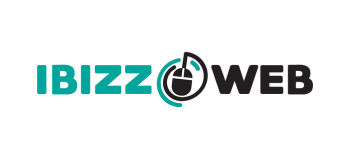
As global businesses expand into Africa, Ghana stands out as one of the region’s most stable and investment-friendly economies. With consistent GDP growth, political stability, and a skilled workforce, it presents significant opportunities for companies across industries such as mining, oil and gas, telecommunications, fintech, and agriculture. However, navigating employment laws, payroll compliance, and HR operations can be complex. Partnering with a Professional Employer Organization in Ghana enables businesses to streamline entry, mitigate risks, and focus on growth while ensuring compliance with local labor regulations.
Understanding PEO Services
A Professional Employer Organization (PEO) is a strategic HR partner that provides co-employment services, handling administrative and compliance responsibilities on behalf of client companies. While the client retains operational control of its workforce, the PEO manages the employer-related functions that are critical for compliance and efficiency.
Key services typically covered by PEOs include:
- Drafting and managing legally compliant employment contracts
- Payroll processing in local currency with accurate tax deductions
- Administration of statutory benefits and pension contributions
- Management of employee onboarding, leave, and HR policies
- Guidance on labor law compliance and dispute resolution
This model allows companies to hire quickly without establishing a local entity, significantly reducing both costs and time to market.
Labor and Employment Regulations in Ghana
Ghana’s labor market is regulated primarily by the Labour Act of 2003 (Act 651) and related employment legislation. Employers must understand and comply with a range of obligations to avoid penalties or disputes.
Critical elements include:
- Employment contracts:Written contracts are required, specifying terms of work, compensation, and entitlements.
- Working hours:A standard workweek is 40 hours, typically spread over five days.
- Leave entitlements:Employees are entitled to at least 15 days of annual leave, plus sick leave and maternity leave provisions.
- Termination rules:Employers must provide valid grounds and observe statutory notice periods.
- Unions and collective bargaining:Trade unions are influential, and sector-specific collective agreements may apply.
A PEO ensures that employment practices align with Ghanaian labor law, minimizing risks for international businesses.
Payroll and Taxation in Ghana
Managing payroll in Ghana involves multiple layers of compliance with tax and social security requirements. Employers must process wages in Ghanaian cedis (GHS) while adhering to regulations overseen by the Ghana Revenue Authority (GRA).
Payroll requirements include:
- Income tax deductions at progressive rates up to 30% under the Pay-As-You-Earn (PAYE) system
- Employer contributions to the Social Security and National Insurance Trust (SSNIT), covering pensions and welfare benefits
- Mandatory deductions for employee social security contributions
- Compliance with reporting requirements to tax and labor authorities
- Tax clearance obligations for expatriates working in Ghana
A Professional Employer Organization in Ghana ensures payroll accuracy, timely tax submissions, and full compliance with local regulations.
Advantages of Using PEO Services in Ghana
For international companies, outsourcing HR and compliance functions to a PEO offers strategic and operational benefits.
Key advantages include:
- Faster market entry:Hire employees without establishing a subsidiary or branch.
- Regulatory compliance:Stay aligned with Ghana’s labor and tax framework.
- Reduced administrative burden:Free up leadership teams to focus on growth.
- Cost efficiency:Avoid entity setup costs and ongoing legal expenses.
- Flexibility:Scale workforce numbers quickly based on project needs.
These benefits make PEOs particularly attractive for project-driven industries such as energy, construction, and IT services.
PEO vs. Employer of Record in Ghana
While often used interchangeably, PEO and Employer of Record (EOR) models differ in structure.
- PEO services:Operate under a co-employment arrangement, sharing HR responsibilities with the client.
- EOR services:The provider acts as the official employer of record, taking on full liability for compliance.
For companies without a registered entity in Ghana, the EOR model may be more suitable. For businesses with an established entity, PEO services provide ongoing HR and compliance support.
Sectors Benefiting from PEO Solutions
Ghana’s economy is diverse, with several high-growth sectors that benefit from PEO services.
- Energy and natural resources:Support for mining, oil, and gas projects requiring rapid mobilization of technical teams.
- Agriculture and agribusiness:Seasonal workforce management and compliance with rural labor practices.
- Telecommunications and IT:Efficient hiring of skilled professionals in a competitive talent market.
- Financial services and fintech:Compliance with strict regulatory frameworks while accessing top local talent.
- Non-profits and NGOs:Fast, compliant hiring for donor-funded programs.
HR Challenges in Ghana
Despite Ghana’s favorable business climate, HR management presents unique challenges for international companies.
Common obstacles include:
- Understanding and implementing local labor regulations
- Administering payroll taxes and SSNIT contributions accurately
- Obtaining work permits and residency compliance for expatriates
- Managing union relations and collective agreements
- Keeping pace with frequent regulatory updates
Partnering with a PEO mitigates these risks by leveraging local expertise and compliance infrastructure.
Selecting a PEO Partner in Ghana
The effectiveness of PEO services depends heavily on the provider’s expertise and capabilities. Companies should carefully assess potential partners.
Selection criteria include:
- Demonstrated experience in Ghanaian labor law and payroll systems
- Transparent pricing with clear service scope
- Capability to support both local and expatriate employees
- Technology platforms for payroll management and HR reporting
- Regional presence to support cross-border operations in West Africa
A reliable PEO partner acts as a strategic advisor, ensuring smooth operations in compliance with local requirements.
The Future of PEO Services in Ghana
As Ghana continues to strengthen its economy and attract foreign investment, the demand for PEO services is expected to rise. Increasing digitalization of payroll systems, regional trade agreements, and growth in technology-driven sectors will further accelerate this trend.
Notable future developments include:
- Broader adoption of PEO solutions by small and medium-sized enterprises (SMEs)
- Integration of digital HR platforms for payroll and compliance automation
- Growing demand in industries such as renewable energy and fintech
- Enhanced workforce mobility across West Africa under regional agreements
Conclusion
Engaging a Professional Employer Organization in Ghana provides businesses with a compliant, efficient, and flexible solution to managing workforce operations in one of Africa’s fastest-growing economies. By outsourcing HR, payroll, and compliance responsibilities to a trusted partner, companies gain the confidence to scale operations, minimize risks, and focus on long-term growth. PEO services are not only a cost-saving measure but also a strategic tool for unlocking opportunities in Ghana’s dynamic business landscape.




